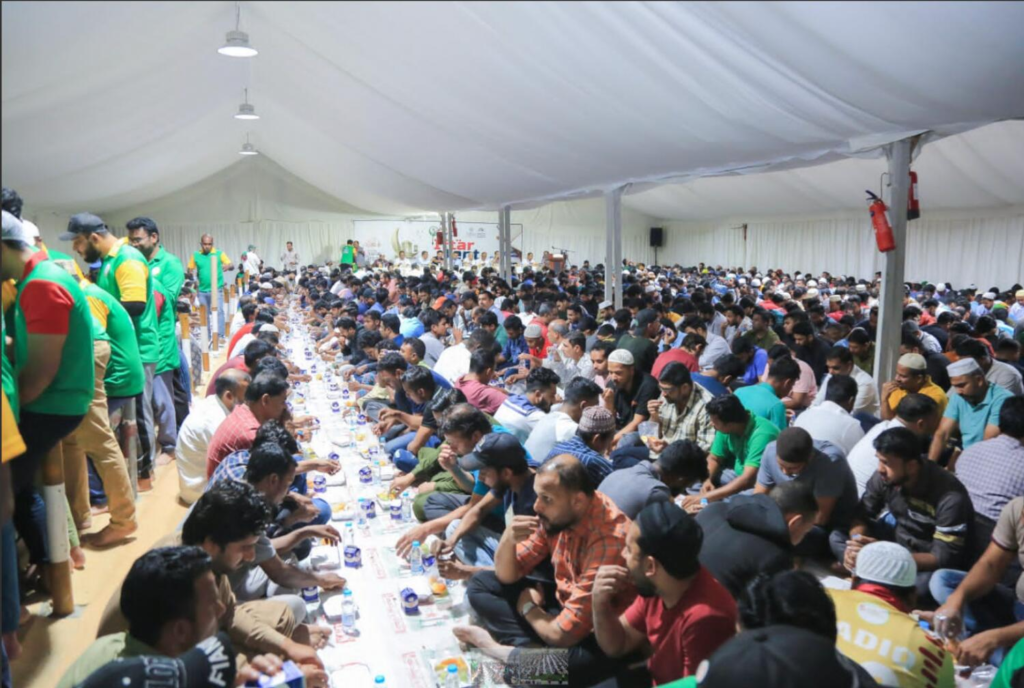Irrespective of religion, race and background, Iftar Distribution, drinks and a sumptuous meal.

Come Ramadan, open areas, bylanes and labour accommodations of UAE turn into giant Iftar tables. Hundreds of thousands of Iftar meals are distributed for free every single day during the holy month. There will be an Iftar tent at every nook and corner of the Emirates.
buy affordable iftar kit box for distribution.

Free meal boxes are handed out by police officials and volunteers nationwide at traffic junctions to those rushing home to break their fast. Millions of dirhams worth of food are distributed. Workers, who would have otherwise needed to shell out about Dh10 or 15 per meal, are fed to their fill without spending a penny.
Irrespective of religion, race and background, thousands of UAE expats are served fruits, drinks and a sumptuous meal, all for free. For many of them, it is the month that they can send home a little extra cash that they would otherwise spend on food.

Several UAE-based organisations like the Emirates Red Crescent, Islamic Affairs of Charitable Activities Department (IACAD), Beit El Khair and Awqaf actively distribute Iftar kits to those who need them. The Labour Standards Development Authority in Sharjah (LSDA) has continued holding events in Saja’a Labour Park and its Ramadan tent in Sharjah city for more than 4,500 workers daily. The labour park and tent also provided awareness lectures in worker’s languages given by community police as well as preachers hosted by the Department of Islamic Affairs in Sharjah.
Have you ever wondered about the cost of these massive undertakings? Who pays for it, who coordinates the logistics and who distributes it? KT spoke to four organisations that are part of this ecosystem.
Since the pandemic, Team Iftar has drastically cut down its operations to limit itself to just a handful of camps. “We now work closely with the Awqaf and service around four or five camps in Sajja,” he said.

Photo: Siamah Qader
According to British expat Siamah Qadar, who runs Merciful Hands in Dubai and distributes Iftar meals to camps in Jebel Ali industrial area, no amount of food is too much. “We started with 1,000 meals this year,” she said. “But within the first ten days, there were 2,000 people coming so we had to ramp up our operations. On days when there is more packets of food than the people who come, we go to neighbouring camps and drop them off. There is never a situation where we have too much food. There are always takers for it.”
